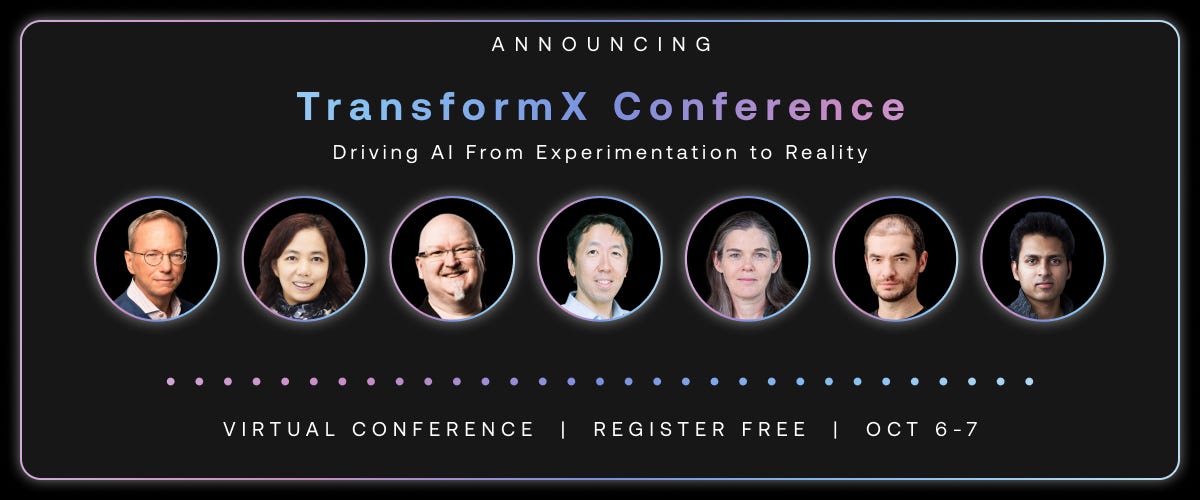🌋 The Biggest Problems in ML Safety
The Scope covers the most relevant ML papers, real-world ML use cases, cool tech releases, and $ in AI. Weekly
📝 Editorial
Machine learning (ML) is advancing at an incredibly rapid pace, with bigger and more complex models being created regularly. That level of growth has brought an increase in the security and safety risks of ML models. The main challenge with ML safety is that it is very hard to understand and quantify fully. Beyond some techniques such as adversarial attacks, the universe of ML safety challenges remains relatively obscure. Developing methods to quantify ML safety risks is one of the most critical tasks for the next phase of ML.
ML safety is so tricky because it manifests across the entire lifecycle of ML models. ML safety is not one problem but a fragmented family of challenges present in different phases of the ML pipelines, ranging from training to model management. Just this week, researchers from UC Berkeley, Google, and OpenAI collaborated on a remarkable paper that identifies several unsolved ML safety problems categories. The paper focuses on four main types of ML safety challenges: withstanding attacks (“Robustness”), identifying potential vulnerabilities (“Monitoring”), designing ML systems that follow objectives (“Alignment”), and reducing vulnerabilities to the infrastructure in which ML models operate (“External Safety”). This paper represents one of the clearest and most complete analyses in ML safety of the last few years and should inspire new frameworks and technologies in the space.
🔺🔻TheSequence Scope – our Sunday edition with the industry’s development overview – is free. To receive high-quality content about the most relevant developments in the ML world every Tuesday and Thursday, please subscribe to TheSequence Edge 🔺🔻
🗓 Next week in TheSequence Edge:
Edge#129: we discuss Self-Supervised Learning as Non-Contrastive Learning; we explore DeepMind’s BYOL that makes non-contrastive SSL real; we cover Facebook’s Polygames, a framework to train deep learning agents through self-play.
Edge#130: we explore the ML engineering magic behind OpenAI Codex.
📌 Join us free
We’re excited to partner with Scale AI on TransformX Conference that explores the shift from research to reality within AI and ML.
Now, let’s review the most important developments in the AI industry this week
🔎 ML Research
Microsoft’s New Massive Cross-Language Model
Microsoft Research unveiled T-ULRv5, a 2.2 billion parameter model that top Google’s XTREME leaderboard for cross-lingual tasks →read more on Microsoft Research blog
Short-Term Weather Forecasting
DeepMind published a paper describing a technique used for forecasting the probability of rain within 1-2 hours →read more on DeepMind blog
ML Safety Problems
Berkeley AI Research (BAIR) lab published a paper discussing a series of unsolved ML safety problems →read more on BAIR blog
Better Generalization in Reinforcement Learning Agents
Google Research published a paper proposing a method to improve the generalization of unseen tasks in RL agents →read more on Google Research blog
🛠 Real World ML
Airflow at Airbnb
The Airbnb engineering team published a blog detailing their internal data pipeline architecture based on Airflow →read more on Airbnb blog
Cloud Spanner at Uber
The Uber engineering team published a blog post detailing an architecture based on Google’s Cloud Spanner powering its fulfillment platform →read more on Uber blog
🤖 Cool AI Tech Releases
Amazon QuickSight Q
Amazon announced the general availability of QuickSight Q, a platform designed to execute natural language queries on top of the QuickSight BI platform →read more on AWS blog
Azure Data Governance Service
Microsoft announced the general availability of Azure Purview, its data governance service →read more on Azure blog
🗯 Useful Tweet
We find the best for you ;)

💸 Money in AI
For ML&AI teams:
Data annotation platform Tasq.ai raised $4 million in a seed funding round led by angel investors. Hiring in Israel.
Data observability platform Acceldata raised $35 million in a Series B round led by Insight Partners. Hiring in San Jose, USA/Bangalore, India.
Data mimicking and de-identification startup Tonic.ai raised $35 million in a Series B financing round led by Insight Partners. Hiring remotely.
ML observability and model monitoring platform Arize AI raised $19 million in Series A funding led by Battery Ventures. Hiring in SF Bay area and remote.
Fabless semiconductor company Astera Labs raised $50 million in a Series C funding round led by Fidelity. Hiring globally.
AI-powered:
Contract analysis and management platform ContractPodAI raised $115 million in a Series C investment led by SoftBank Vision Fund 2.
Decision intelligence platform Sisu Data raised $62 million in a Series C funding round led by Green Bay Ventures. Hiring on San Francisco, USA.
DNA-based digital data storage Catalog raised $35 million in Series B funding led by Hanwha Impact. Hiring in Boston, USA.
Conversational platform Leena AI raised $30 million in Series B funding led by Bessemer Venture Partners. Actively hiring in India.
Document processing platform Zuva raised $20 million in a Series A funding round led by Insight Partners. Hiring in Toronto/Ontario, Canada.
Contract lifecycle management startup Malbek raised $15.3 million in a Series A funding round led by Noro-Moseley Partners. Hiring in the USA and India.
Customer service software solution Thankful raised a $12 Million Series A Funding Round led by Alpha Edison.
Meeting intelligence platform Read AI raised $10 million in seed funding from Madrona Venture Group. Hiring in Seattle and remotely in the USA.

